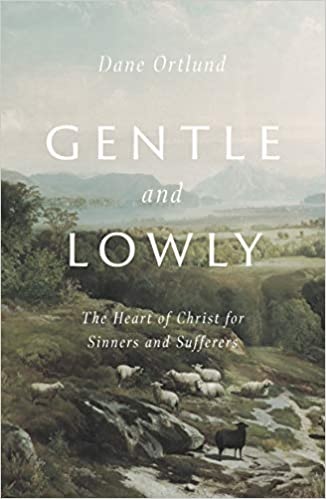Dane Ortlund, writing in his wonderful new book Gentle And Lowly, of Jesus’ words that resonate perhaps most deeply with depressed, anxious Christians.
Of Christ’s promise in John, “Whoever comes to me, I will in no wise cast out.”
Ortlund:
“We no longer use the expression ‘in no wise’, but it was a 17th century English way of capturing the emphatic negative of the Greek of John 6:37.
The text literally reads, ‘the one coming to me I will not — not — cast out.’
Sometimes, as here, Greek uses two negatives piled on top of each other for literary forcefulness. ‘I will most certainly never, ever cast out.’
It is this emphatic negation that Christ will ever cast us out that [John] Bunyan calls ‘this great and strange expression.”
….Fallen, anxious sinners are limitless in their capacity to perceive reasons for Jesus to cast them out. We are factories of fresh resistances to Christ’s love.
Even when we run out of tangible reasons to be cast our, such as specific sins or failures, we tend to retain a vague sense that, given enough time, Jesus will finally grow tried of us and hold us at arm’s length.
“No, wait” — we say, cautiously approaching Jesus — “you don’t understand. I’ve really messed up, in all kinds of ways.”
I know, he responds.
“You know most of it, sure. Certainly more than what others see. But there’s perversity down inside me that is hidden from everyone.”
I know it all.
“Well — the thing is, it isn’t just my past. It’s my present too.”
I understand.
“But I don’t know if I can break free of this any time soon.”
That’s the only kind of person I’m here to help.
“The burden is heavy — and heavier all the time.”
Then let me carry it.
“It’s too much to bear.”
Not for me.
“You don’t get it. My offenses aren’t directed towards others. They’re against you.”
Then I am the one most suited to forgive them.
“But the more ugliness in me you discover, the sooner you’ll get fed up with me.”
Whoever comes to me I will never cast out.
End of passage from Ortlund’s book.
Of course remember we must come to Christ first.
As intolerant, as exclusivist as it might sound to our modern ears, he is and has always been, “the way, the truth, and the life,” and as Peter says in Acts, “Salvation comes no other way; no other name has been or will be given to us by which we can be saved, only this one.”
And when we come to that name, he will never —ever — cast us out.
As Ortlund notes later in his book, Jesus saves us “to the uttermost,” which means as far, as wide, as fully as possible. That is “to the uttermost.”
And it is the most beautiful “no matter what” love you and I can ever know.

